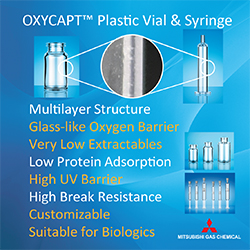Next-Generation Silicone Adhesive Technologies Key to Broader Global Adoption, Growth of Wearable Medical Devices
According to Grand View Research, the global market for wearable medical devices is expected to reach $27.8 billion by 2022.1 Dow Corning, a global leader in silicones, silicon-based technology, and innovation and a wholly owned subsidiary of The Dow Chemical Company, sees the role of specialized adhesive technologies as a key driver of this growth – especially in skin-adhered medical devices, a major segment of the wearables market. Selecting the right adhesive for each device type – based upon factors such as duration of wear, skin condition, and device size and weight – can have a significant impact on patient compliance and, ultimately, treatment efficacy. Advancements in silicone-based adhesive technologies are intended to offer expanded flexibility to support new device designs while meeting patient needs for comfort and ease of use.

PHOTO: Dow Corning’s wide range of advanced silicone adhesives make it easy to find a match for each type of skin-adhered medical device.
“Wearable medical devices represent one of the fastest growing sectors in the healthcare industry, which is being fueled by several trends,” said Marie Crane, Healthcare marketing leader, Dow Corning. “While wearable monitoring and treatment devices can deliver important benefits to patients, caregivers, and the health system as a whole, their effectiveness depends on compliant usage – and compliance is closely linked to comfort. This is where Dow Corning’s tailored silicone solutions for skin-adhered devices, including Dow Corning® MG 7-1010 Soft Skin Adhesive, our highest adhesion level of soft-skin adhesive to date, make a big difference.”
Medical Device Megatrends
Four major trends are driving the growth of wearable medical devices, including skin-adhered diagnostic and therapeutic devices.
Population Aging: According to the Administration for Community Living, people aged 65 or older numbered 46.2 million in 2014 (the latest year for which data is available). By 2060, that population will more than double to about 98 million.2 Seniors typically have more medical issues than the younger population and can face difficulty traveling to the hospital or doctor’s office to receive care. Wearable medical devices allow more elderly people to benefit from convenient, remote monitoring and treatment at home.
Chronic Conditions: The Centers for Disease Control and Prevention (CDC) reports that as of 2012, about half of all adults – 117 million people – had one or more chronic health conditions.3 Heart disease, stroke, cancer, type 2 diabetes, obesity, and arthritis often require ongoing monitoring, which can be provided with wearables. Importantly, wearable devices can also help with prevention by enabling patients to track their health and make healthier choices.
Self-Management: Patients’ increasing interest in managing their own health and fitness is another major factor in the growth of wearable devices. Skin-adhered devices can provide a wide range of self-management functions, from back therapy guidance and ambulation monitoring to smoking cessation and sweat analysis4 for evaluating exercise results.
Cost Control: Ongoing pressure to reduce spiraling medical costs can be alleviated by replacing some in-patient or out-patient clinical care with remote monitoring and treatment. Skin-adhered devices can wirelessly relay critical data to clinicians and automatically deliver medication, for example, via a programmed on-body injector.
Comfort Promotes Compliance
While skin-adhered diagnostic and therapeutic devices provide answers to the challenges of these megatrends, their efficacy – and market success – depend directly on patient compliance. Avoiding irritation during wear and discomfort during removal of skin-adhered devices, particularly when patients have delicate or sensitive skin, is an important compliance factor. This is why many device designers are turning to silicone pressure-sensitive and soft-skin adhesives. In addition to delivering proven biocompatibility, water repellency and design versatility, Dow Corning’s wide range of advanced silicone adhesives – with different levels of tack, adhesion strength and other parameters – make it easy to find a match for each application.
In addition to developing new pressure-sensitive adhesives and gentle soft-skin adhesives, Dow Corning is investing in state-of-the-art capabilities for medical device customers. Its newly expanded application center in Midland, Mich., for example, offers expertise and support in medical device material processing and testing.
Dow Corning is exhibiting at MD&M West 2017 in Booth 1921, where it is showcasing its expanding healthcare portfolio of industry-leading silicone technologies.
According to Grand View Research, the global market for wearable medical devices is expected to reach $27.8 billion by 2022.1 Dow Corning, a global leader in silicones, silicon-based technology and innovation and a wholly owned subsidiary of The Dow Chemical Company, sees the role of specialized adhesive technologies as a key driver of this growth – especially in skin-adhered medical devices, a major segment of the wearables market. Selecting the right adhesive for each device type – based upon factors such as duration of wear, skin condition, and device size and weight – can have a significant impact on patient compliance and, ultimately, treatment efficacy. Advancements in silicone-based adhesive technologies are intended to offer expanded flexibility to support new device designs while meeting patient needs for comfort and ease of use.
About Dow Corning
Dow Corning (www.dowcorning.com) , a wholly owned subsidiary of The Dow Chemical Company, provides performance-enhancing solutions to serve the diverse needs of more than 25,000 customers worldwide. A global leader in silicones, silicon-based technology and innovation, Dow Corning offers more than 7,000 products and services via the company’s Dow Corning® and XIAMETER® brands. More than half of Dow Corning’s annual sales are outside the United States. Dow Corning’s global operations adhere to the American Chemistry Council’s Responsible Care® initiative, a stringent set of standards designed to advance the safe and secure management of chemical products and processes.
About Dow
Dow (NYSE: DOW) combines the power of science and technology to passionately innovate what is essential to human progress. The Company is driving innovations that extract value from material, polymer, chemical and biological science to help address many of the world’s most challenging problems such as the need for clean water, clean energy generation and conservation, and increasing agricultural productivity. Dow’s integrated, market-driven, industry-leading portfolio of specialty chemical, advanced materials, agrosciences and plastics businesses delivers a broad range of technology-based products and solutions to customers in approximately 180 countries and in high-growth sectors such as packaging, electronics, water, coatings and agriculture. In 2015, Dow had annual sales of nearly $49 billion and employed approximately 49,000 people worldwide. The Company’s more than 6,000 product families are manufactured at 179 sites in 35 countries across the globe. On June 1, 2016, Dow became the 100 percent owner of Dow Corning Corporation’s silicones business, a global company with sales of greater than $4.5 billion in 2015, 25 manufacturing sites in 9 countries and approximately 10,000 employees worldwide. References to “Dow” or the “Company” mean The Dow Chemical Company and its consolidated subsidiaries unless otherwise expressly noted. More information about Dow can be found at www.dow.com.
1. https://www.grandviewresearch.com/press-release/global-wearable-medical-device-market
2. https://aoa.acl.gov/Aging_Statistics/Index.aspx
3. https://www.cdc.gov/chronicdisease/overview/
4. https://news.northwestern.edu/stories/2016/11/researchers-develop-soft-microfluidic-lab-on-the-skin-for-sweat-analysis/
For further information contact:
Brittney Quider-Zabawski
Dow Corning
+1.989.496.5933
brittney.quider@dowcorning.com
Joe Bennett
AH&M Marketing Communications
+1.413.448.2260, Ext. 470
Total Page Views: 1468














